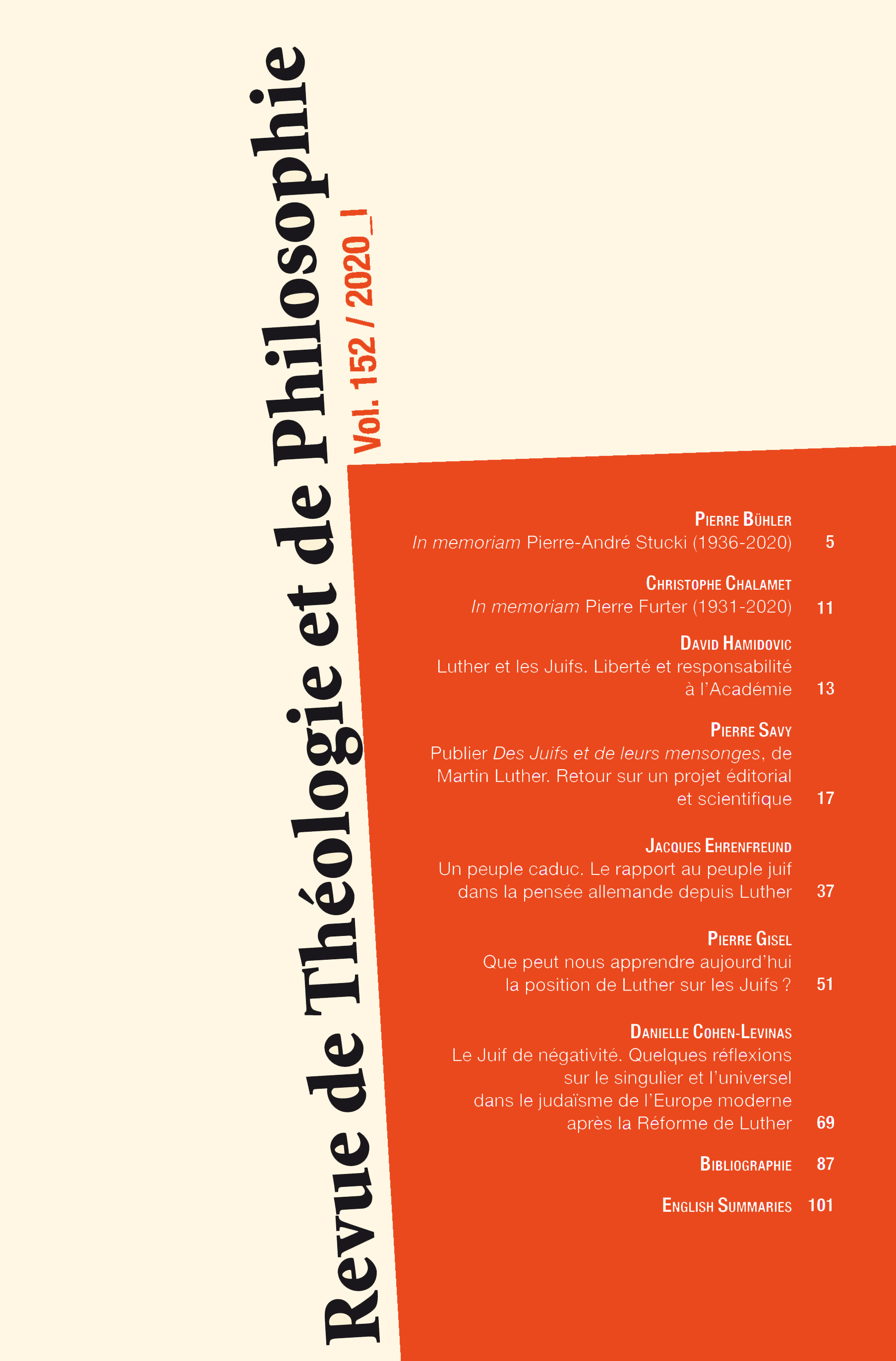What can Luther’s views on Jews teach us today?
Abstract
Beyond the historical data, Luther’s views on Jews must be an opportunity for an in-depth revision of central theological motives in Christianity. This is the aim of this article, which tackles five themes: first, the reading of Scripture, which according to Luther must focus on one single sense, since Scripture is in principle clear, whereas Judaism fosters, very differently, a plural and never finished reading of the texts; second, the theme of newness, and so the question, which runs through the entire history of Western thought, of Christianity’s complex relations to what is ancient; third and fourth, the problem of universality as the cancellation of particularities, and the question of a Law which must be exceeded. Fifth and finally, the question of a God who, asymmetrically with regard to the world and to humanity, exceeds them (or not). On each of these points, the confrontation of Christianity and Judaism is very instructive. The author challenges, on each of them, a certain Christian radicality and suggests a different way of considering them.
How to Cite
More Citation Formats
Issue
Most read articles by the same author(s)
- Pierre Gisel, What kind of religious communities in what kind of civil society?, Revue de Théologie et de Philosophie: Vol. 152 n° 2 (2020): Michel de Certeau (1925-1986) et la Compagnie de Jésus
- Pierre Gisel, Bernard Hort, Gérard Siegwalt. Un protestantisme inclusif, Revue de Théologie et de Philosophie: Vol. 151 n° 3 (2019):
- Pierre Gisel, Joseph Moingt, Esprit, Église et Monde. De la foi critique à la foi qui agit, Revue de Théologie et de Philosophie: Vol. 150 n° 1 (2018):
